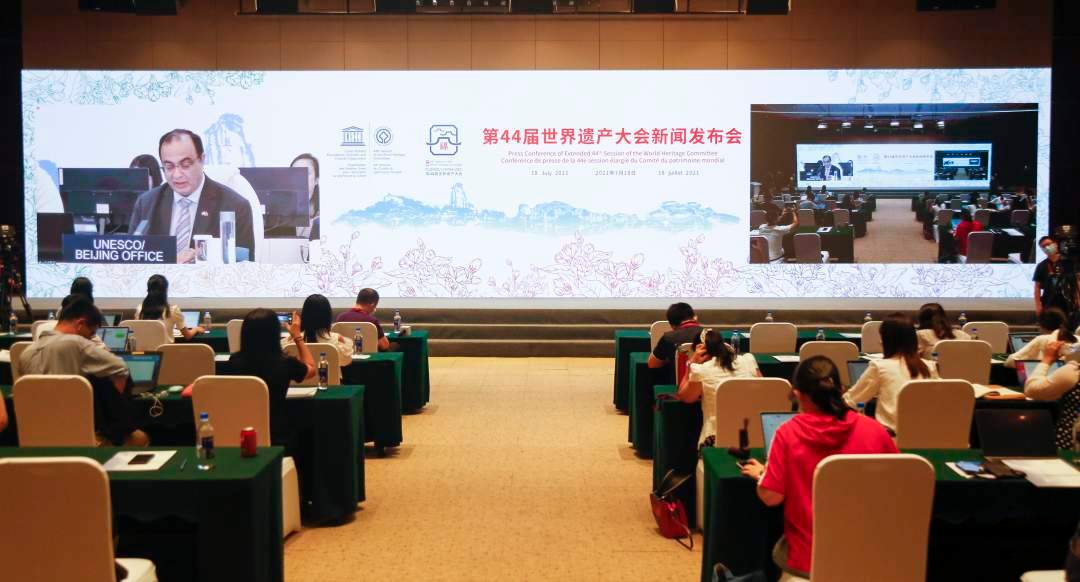




Scene of the press conference of the Extended 44th
Session of World Heritage Committee
Photographed by Wang Xian, People's Daily Online
Tian Xuejun, Chairperson of the Extended 44th Session of the World Heritage Committee, China's Vice Minister of Education, and Director of the Chinese National Commission for UNESCO, expressed that on the first day of the Session, committee members carried out extensive and fruitful discussion on items such as World Heritage Capacity-Building Strategy and World Heritage, and reached broad consensus. The Declaration reiterates the significance of world heritage protection and international cooperation, as well as the need to work and act together to address climate change.
The Declaration states that, as cultural and natural treasures, global heritage has made a positive contribution to the exchanges and mutual learning among civilizations, as well as to world peace and sustainable development. The Declaration emphasizes that it is a shared responsibility of humankind to properly tackle various traditional and non-traditional challenges to protect world heritage. In addition, the Declaration calls for closer international cooperation within the framework of multilateralism, increased support for developing countries, especially the ones in Africa and the small island developing states. It also asks for strengthened education, knowledge sharing and application of new technologies regarding world heritage. Taking the opportunity of the 50th anniversary of the World Heritage Convention to look back at history and forward to the future, Fuzhou Declaration appeals for leaving to future generations a world that is open, inclusive, self-adjusting, sustainable, resilient, clean and beautiful. The Declaration has been widely recognized and highly praised by various committees. It is generally agreed that the declaration is very balanced, inclusive, and monumental.
Mr Ernesto Ottone Ramírez, Assistant Director-General for Culture of UNESCO, expressed via video link that the session will review an agenda with the duration of two years, update three important lists, namely the World Heritage List, the List of World Heritage in Danger and the Tentative List, and discuss on topics with profound influence, such as the connections among climate change, sustainable development, Priority Africa and world heritage, and the way to improve the working methods and management of world heritage in the future.